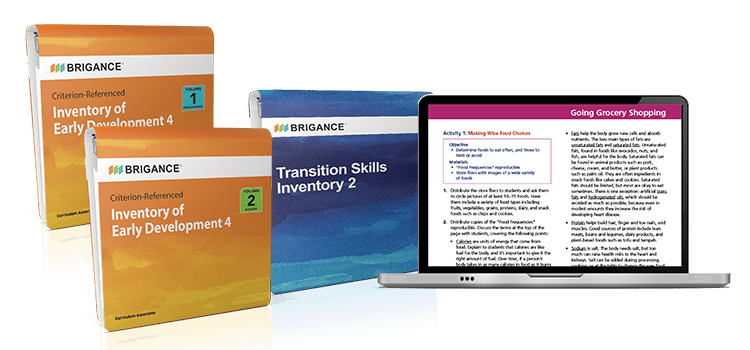Loading component...
Special Education Resources
Schools and community organizations trust BRIGANCE for research-based materials that save teachers time while meeting IDEA compliance expectations and the needs of exceptional children.

Curriculum Associates is proud of our legacy in publishing assessments, resources, and lesson plans that meet the personalized learning needs of students in special education.
BRIGANCE Special Education materials consist of teacher-facilitated activities and assessments for monitoring individuals' progress in key developmental domains, academic skills, and transitional supports that can be used with children based on their developmental levels and chronological ages. Our in-depth resources assist professionals with writing accurate and meaningful IEPs for developing the skills students need to thrive from birth to adulthood.
- Early Academic Skills (Literacy, Mathematics, Science)
- Physical, Language, and Cognitive Development
- Social and Emotional Development
- Daily Living and Self-Help Skills
- Self-Determination Skills
- Financial Literacy and Job-Seeking Skills





